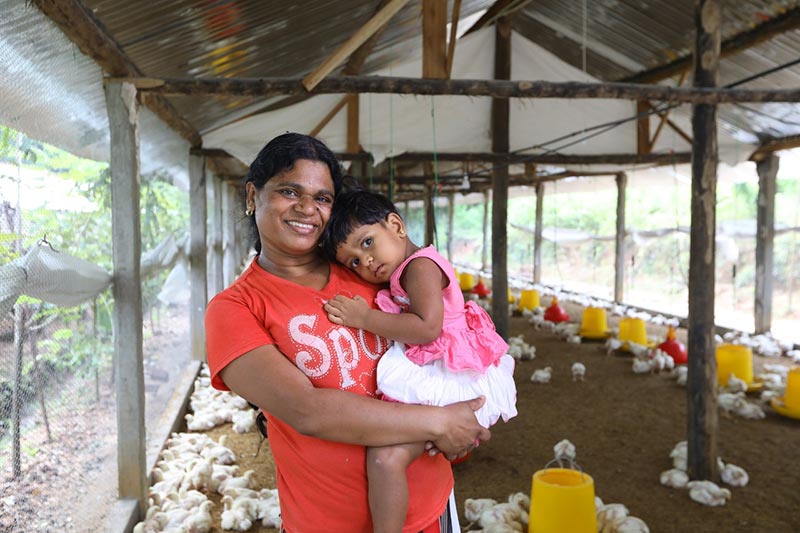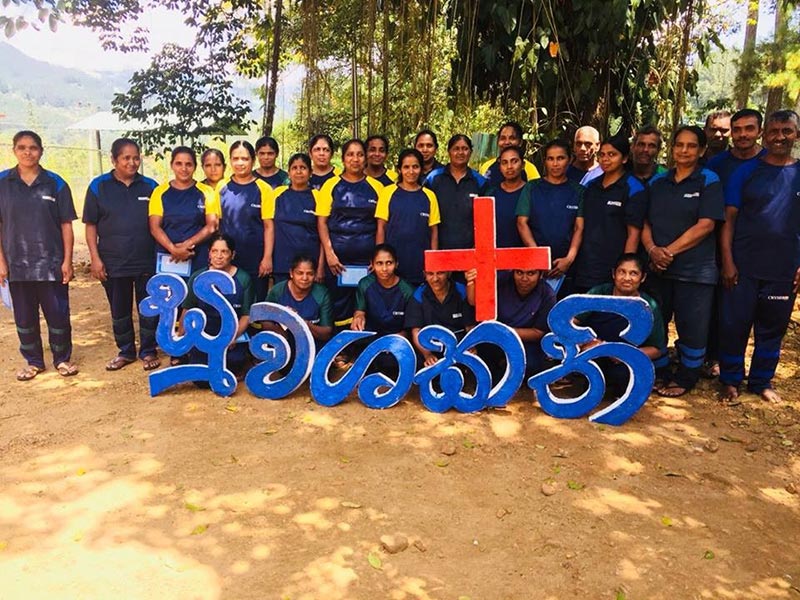
CRYSBRO empowers rural Sri Lanka’s persevering female workforce
Sri Lanka’s female labour force participation has always been in the lower figures. With the mass negative implications of the COVID-19 pandemic, its current rate of 35% is predicted to decline even further. In such a context, Sri Lanka’s largest poultry company CRYSBRO is striving hard to push the boundaries of gender parity by empowering female workers in rural Sri Lanka both financially and socially.
Over the past several years, CRYSBRO has actively facilitated thousands of job opportunities and steady sources of income for persevering and previously unemployed female workers, through its numerous factories and farms operating across several rural provinces in the country. The company has single-handedly created over 350 employment opportunities through its poultry farms, and is supporting over 250 contract growers, most of whom are female farmers deeply intent on maintaining an additional source of income to supplement their children’s education, healthcare and family needs. CRYSBRO also provides ample training, financial aid and resources to give their female workers a head start on their solo entrepreneurial pursuits.

“As a home-grown company that cares deeply about the rural communities, we believe that women form the backbone of this micro economy. Our contract growing project is therefore geared to financially empower women in these areas who are usually forced to depend on their husbands or fathers to live. These new sources of income have amplified the colour and purpose in their lives, while enabling them to support their children’s needs in education, clothing and healthcare, as well as progress their communities like never before. We believe it is our duty to continue to enhance our support to embolden our country’s female workforce, and equip them to lead a fierce positive revolution in the rural economy that can thereafter benefit our country’s economy and society greatly,” stated CRYSBRO Group of Companies Group HR and Admin Manager Ranjana Mahindasiri.
Furthermore, CRYSBRO routinely organizes female-specific health screening programs which also assists them in seeking secondary medical care if necessary. Under CRYSBRO’s employee welfare program, the company’s workers are able to benefit financially for special events in their lives such as weddings and births. Employees are offered flexible schedules with regard to maternity leave such as by accepting early approvals, extension of leave period and even assigning them soft duties during the period of pregnancy. CRYSBRO also gives its female workers the opportunity to earn an additional income by purchasing their annual requirement of over 1200 Birthday Cards from workers involved in this business.
As a home-grown company that has displayed an immense commitment to uplifting the standards of the rural communities in Sri Lanka, CRYSBRO has done much to empower maize and poultry farmers from the Central, North Central, Uva and Eastern provinces under its flagship Dirisaviya CSR initiative. CRYSBRO equips these modest businesses with the technical expertise necessary to implement effective business processes and innovative technology. In the case of the company’s poultry outgrowers, it also provides them with the requisite chicken feed and then purchases the chicks that have matured over 45 days at a fair price in a timely manner. This guarantees these families’ financial security and independence, thereby uplifting and safeguarding an essential component of the agricultural economy. Currently, more than 1,200 farmers from these rural regions have directly benefitted from this unique scheme.
About CRYSBRO
Established in 1972 with just 100 chicks and a deep desire to be a market leader in quality and innovation, CRYSBRO has emerged as Sri Lanka’s first and most sophisticated, fully vertically-integrated poultry producer. Its operations span grandparent and parent farms, hatcheries, broiler farms and feed mills. This thriving ‘Farm-to-Fork’ concept has formed the core of its success. In turn, it has yielded unprecedented benefit for numerous stakeholders including direct and indirect employees, outgrowers, domestic maize farmers and ultimately Sri Lankan consumers. These local links have immeasurably aided domestic production and led to a reduction in reliance on imported poultry products.






